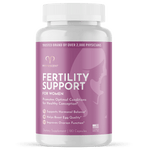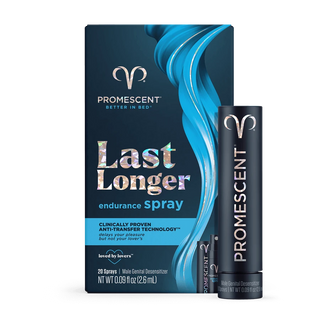Can you take prenatal vitamins without being pregnant? Learn the benefits and potential side effects for women before taking them.


reviews


reviews

During pregnancy, most vitamins decrease in a woman’s blood levels. It’s why it’s become the norm for gynecologists to recommend and prescribe prenatal vitamins to pregnant women.
Some people believe that taking prenatal vitamins while not pregnant can improve fingernails and hair and give their bodies a boost of nutrients.
It may help with fertility to take prenatal vitamins if you're trying to become pregnant. Be aware that there is a risk of side effects due to excess amount of nutrients such as iron and vitamin A.
Some of the benefits of taking prenatal vitamins include reducing the risk of preterm birth and higher live birth rates.
Common ingredients in prenatal vitamins include folic acid, calcium, and iron.
But taking vitamins you don't need can put your body at risk. We will dig further into whether one can take pregnancy vitamins when not pregnant and why regular multivitamins may be the better option.
According to Dr. Blen Tesfu of Welzo, it’s generally safe to take prenatal vitamins even if you’re not pregnant.
But with that said, she also expressed that, “Prenatal vitamins are specifically designed to meet the nutritional needs of pregnant women and may contain higher levels of certain nutrients like folic acid and iron. While these nutrients can be beneficial, taking them in excess without a specific need may lead to some health issues, such as constipation or iron toxicity.”
Women take prenatal vitamins to replace nutrients that decrease while pregnant. These supplements vary in the types and amounts of vitamins. They can include additives like omega-3 fatty acids, folic acid, and iron.
Here are a few vitamins and minerals that can be harmful if the daily recommended amount is exceeded.
Dr. Tesfu advises, “It is always best to consult with a healthcare provider or a registered dietitian to determine the appropriate vitamin supplementation for your individual needs and circumstances.”
Some of the advantages of taking prenatal vitamins when not pregnant include decreased risk of preterm birth, higher rate of successful pregnancies, and reduced chances of birth irregularities.
When we asked Dr. Tesfu about the benefits of taking prenatal vitamins when not pregnant, she stated, “Some women may find them helpful during childbearing years if they are planning to become pregnant in the near future, as folic acid can help prevent certain birth defects if taken before conception. The vitamins may also provide a convenient way to obtain essential nutrients like iron and calcium if your diet is lacking in these areas.”
With that said, she also noted, “A general multivitamin, designed for your age and gender, may be more appropriate if you're not planning a pregnancy. Again, consulting with a healthcare provider for personalized recommendations is advised.”
Here’s a closer look at some of the top benefits of taking prenatal vitamins when not pregnant.
Docosahexaenoic acid (DHA) is an Omega-3 fatty acid associated with a lower risk of preterm birth. It’s important to note that exceeding 1000mg a day can cause slow blood clotting and increase the chance of bleeding.
Prenatal vitamins contain DHA, which also improves cervical mucus. The increase in mucus keeps the baby's nose, mouth, and throat soft and helps to better protect the uterus and baby from bacteria or infection.
Research estimates that nearly 15 million infants are born preterm. Prenatal vitamins contain folic acid, which has been proven to decrease the chances of preterm birth.
According to one study, supplementing folic acid showed a 10% lower risk of premature birth.
Studies show that folate helps in fetal growth and organ development. And women with higher levels of folic acid experience live births at a higher rate than those with lower folate levels.
According to scientific research, supplementing with folic acid can reduce the risk of congenital defects in the neural tube.
Currently, scientists are unsure as to why or how it helps reduce the irregularities.
More research still needs to be done regarding prenatal vitamins increasing the chance of pregnancy. Nonetheless, the research is promising.
One study noted that supplementation with folic acid in the period before pregnancy may increase the chances of conceiving.
In another study, supplementation was found to have a slight beneficial effect on fertility in healthy infertile women by causing a shorter time to pregnancy.
When we asked Dr. Tesfu about prenatal vitamin ingredients, she stated, “Prenatal vitamins typically contain a blend of vitamins and minerals essential for both the mother's health and the baby's development.”
The ingredients that she mentioned were common in prenatal vitamins include:
Here are more details about some of these ingredients.
According to the most recent data, the recommended dose of calcium for adults and those over four years old is 1300mg.
But for pregnant women, calcium absorption increases, so you may not need the extra intake. Most prenatal vitamins contain around 1000 mg of calcium.
As mentioned throughout this article, folic acid is important in the healthy development of a fetus and the pregnancy itself.
Doctors recommend a daily dose of 600 micrograms for pregnant women or those trying to get pregnant.
And while you can get folate from the food you eat, it is often not enough to promote fertility or a healthy pregnancy, which makes prenatal vitamins essential.
Iron is a mineral our bodies need to create new red blood cells. Pregnant women have an increased blood volume, which means that extra iron is vital.
You can acquire some iron through your diet, but the recommended dose of iron while pregnant is 27 mg, compared to 8mg for those not pregnant.
Prenatal vitamins contain an effective and safe amount of iron to prevent iron toxicity in pregnant women.
In addition to all of these ingredients, Dr. Tesfu further noted that, “Prenatal vitamins may contain other vitamins and minerals, so it's important to read the label and discuss the specific formulation with a healthcare provider if you have any concerns or questions.
Always discuss with your doctor before starting prenatal vitamins. They will recommend whether you need to start taking them if you're pregnant or trying to conceive.
You can purchase prenatal vitamins over the counter; however, it's better if a doctor prescribes them.
Whether pregnant or not, eating a folate-rich diet or taking folic acid-only supplements is always a good idea for women of childbearing age.
Both prenatal and non-prenatal multivitamins contain the same essential vitamins and minerals, such as vitamin B, vitamin C, and zinc.
The most significant difference between the two is that prenatal vitamins contain a higher amount of folic acid and iron than non-prenatal multivitamins.
All vitamins come in a unique formula, so it is important to consult with a physician before starting any supplement.
If you're thinking about getting pregnant, you first want to evaluate your diet before considering a prenatal vitamin.
The benefits of taking prenatal multivitamins if pregnant or trying to get pregnant include a lower chance of preterm birth, a higher rate of live birth, decreased risk of birth defects, and a possible boost to fertility.
Multivitamins and other supplements like Fertility for Her may also provide the necessary nutrients without the extra folic acid and iron that prenatal vitamins contain.
Excessive amounts of some vitamins and minerals may cause dangerous toxicity.
Be sure to speak to your doctor or gynecologist and ask them if it’s ok to take prenatal vitamins when not pregnant.

Dr. Blen Tesfu is a practicing physician who is also pursuing a master's in epidemiology and Public Health. She has extensive experience working in primary as well as Tertiary care settings, particularly with women's health and reproductive medicine, communicable diseases, and non-communicable illnesses. Throughout her role as General Practitioner, she has gained diverse knowledge and experience on complex medical topics and dedication to patient education and promotional activities for public well-being initiatives. She is passionate about staying up-to-date on the latest research findings through research publications, journal articles, and guidelines that help inform the best evidence-based practices when treating patients across different communities worldwide.
Absorption Pharmaceuticals LLC (Promescent) has strict informational citing guidelines and relies on peer-reviewed studies, academic or research institutions, medical associations, and medical experts. We attempt to use primary sources and refrain from using tertiary references and only citing trustworthy sources. Each article is reviewed, written, and updated by Medical Professionals or authoritative Experts in a specific, related field of practice. You can find out more about how we ensure our content is accurate and current by reading our editorial policy.
Adams JB, Kirby JK, Sorensen JC, Pollard EL, Audhya T. Evidence based recommendations for an optimal prenatal supplement for women in the US: vitamins and related nutrients. Matern Health Neonatol Perinatol. 2022 Jul 11;8(1):4. doi: 10.1186/s40748-022-00139-9. PMID: 35818085; PMCID: PMC9275129. Accessed on Aug, 2, 2023.
Adams JB, Kirby JK, Sorensen JC, Pollard EL, Audhya T. Evidence based recommendations for an optimal prenatal supplement for women in the US: vitamins and related nutrients. Matern Health Neonatol Perinatol. 2022 Jul 11;8(1):4. doi: 10.1186/s40748-022-00139-9. PMID: 35818085; PMCID: PMC9275129. Accessed on Aug, 2, 2023.
Porter JL, Rawla P. Hemochromatosis. [Updated 2023 Mar 31]. In: StatPearls [Internet]. Treasure Island (FL): StatPearls Publishing; 2023 Jan-. Available from: https://www.ncbi.nlm.nih.gov/books/NBK430862/ Accessed on Aug, 2, 2023.
McEldrew EP, Lopez MJ, Milstein H. Vitamin A. [Updated 2022 Jul 11]. In: StatPearls [Internet]. Treasure Island (FL): StatPearls Publishing; 2023 Jan-. Available from: https://www.ncbi.nlm.nih.gov/books/NBK482362/. Accessed on Aug, 2, 2023.
Richard C, Calder PC. Docosahexaenoic Acid. Adv Nutr. 2016 Nov 15;7(6):1139-1141. doi: 10.3945/an.116.012963. PMID: 28140331; PMCID: PMC5105042. Accessed on Aug, 2, 2023.
Quinn JA, Munoz FM, Gonik B, Frau L, Cutland C, Mallett-Moore T, Kissou A, Wittke F, Das M, Nunes T, Pye S, Watson W, Ramos AA, Cordero JF, Huang WT, Kochhar S, Buttery J; Brighton Collaboration Preterm Birth Working Group. Preterm birth: Case definition & guidelines for data collection, analysis, and presentation of immunisation safety data. Vaccine. 2016 Dec 1;34(49):6047-6056. doi: 10.1016/j.vaccine.2016.03.045. Epub 2016 Oct 13. PMID: 27743648; PMCID: PMC5139808. Accessed on Aug, 2, 2023.
Li B, Zhang X, Peng X, Zhang S, Wang X, Zhu C. Folic Acid and Risk of Preterm Birth: A Meta-Analysis. Front Neurosci. 2019 Nov 28;13:1284. doi: 10.3389/fnins.2019.01284. PMID: 31849592; PMCID: PMC6892975. Accessed on Aug, 2, 2023.
Ebisch IM, Thomas CM, Peters WH, Braat DD, Steegers-Theunissen RP. The importance of folate, zinc and antioxidants in the pathogenesis and prevention of subfertility. Hum Reprod Update. 2007 Mar-Apr;13(2):163-74. doi: 10.1093/humupd/dml054. Epub 2006 Nov 11. PMID: 17099205. Accessed on Aug, 2, 2023.
Gaskins AJ, Chiu YH, Williams PL, Ford JB, Toth TL, Hauser R, Chavarro JE; EARTH Study Team. Association between serum folate and vitamin B-12 and outcomes of assisted reproductive technologies. Am J Clin Nutr. 2015 Oct;102(4):943-50. doi: 10.3945/ajcn.115.112185. Epub 2015 Sep 9. PMID: 26354529; PMCID: PMC4588741. Accessed on Aug, 2, 2023.
Imbard A, Benoist JF, Blom HJ. Neural tube defects, folic acid and methylation. Int J Environ Res Public Health. 2013 Sep 17;10(9):4352-89. doi: 10.3390/ijerph10094352. PMID: 24048206; PMCID: PMC3799525. Accessed on Aug, 2, 2023.
Skoracka K, Ratajczak AE, Rychter AM, Dobrowolska A, Krela-Kaźmierczak I. Female Fertility and the Nutritional Approach: The Most Essential Aspects. Adv Nutr. 2021 Dec 1;12(6):2372-2386. doi: 10.1093/advances/nmab068. PMID: 34139003; PMCID: PMC8634384. Accessed on Aug, 2, 2023.
Schaefer E, Nock D. The Impact of Preconceptional Multiple-Micronutrient Supplementation on Female Fertility. Clin Med Insights Womens Health. 2019 Apr 23;12:1179562X19843868. doi: 10.1177/1179562X19843868. PMID: 31040736; PMCID: PMC6480978. Accessed on Aug, 2, 2023.
Plantz MA, Bittar K. Dietary Calcium. [Updated 2022 Dec 5]. In: StatPearls [Internet]. Treasure Island (FL): StatPearls Publishing; 2023 Jan-. Available from: https://www.ncbi.nlm.nih.gov/books/NBK549792/. Accessed on Aug, 2, 2023.
Brannon PM, Taylor CL. Iron Supplementation during Pregnancy and Infancy: Uncertainties and Implications for Research and Policy. Nutrients. 2017 Dec 6;9(12):1327. doi: 10.3390/nu9121327. PMID: 29210994; PMCID: PMC5748777. Accessed on Aug, 2, 2023.
Uriu-Adams JY, Scherr RE, Lanoue L, Keen CL. Influence of copper on early development: prenatal and postnatal considerations. Biofactors. 2010 Mar-Apr;36(2):136-52. doi: 10.1002/biof.85. PMID: 20232410. Accessed on Aug, 2, 2023.
"Dr. Blen Tesfu - Welzo." Welzo.com, 2023, www.welzo.com/pages/staff/dr-blen-tesfu. Accessed on Aug, 3, 2023.

reviews
Your Cart Is Empty